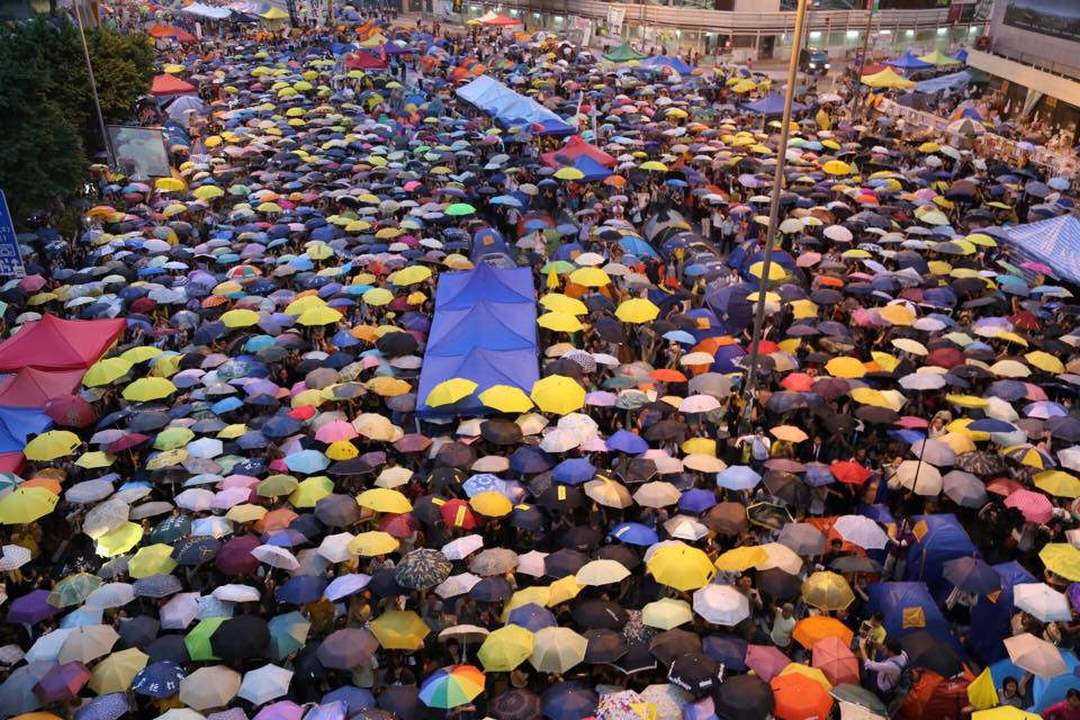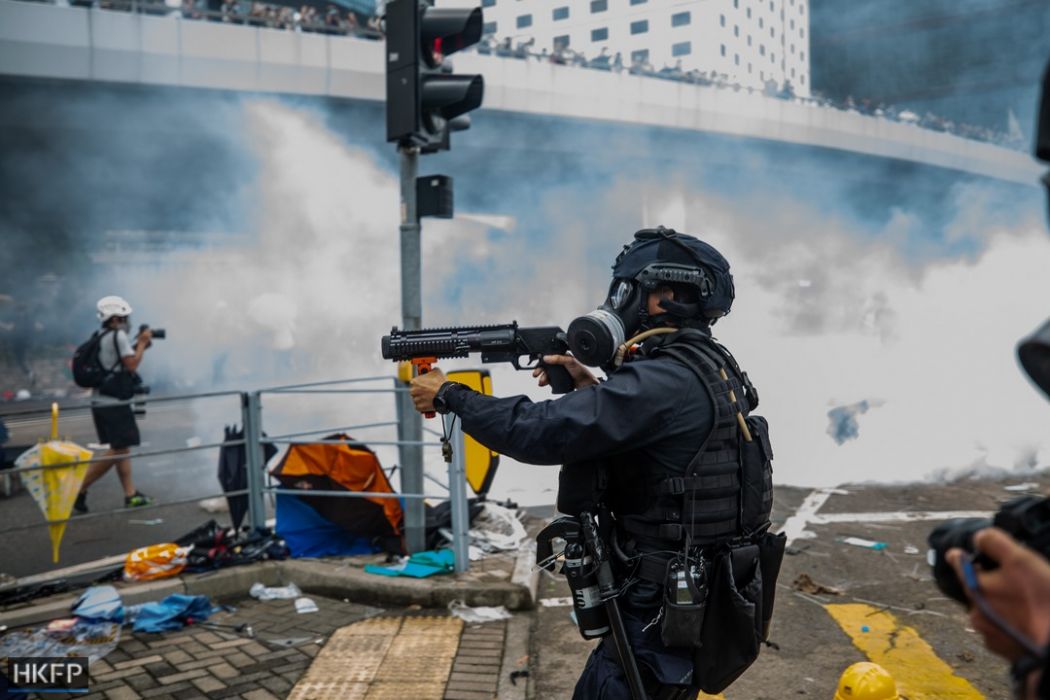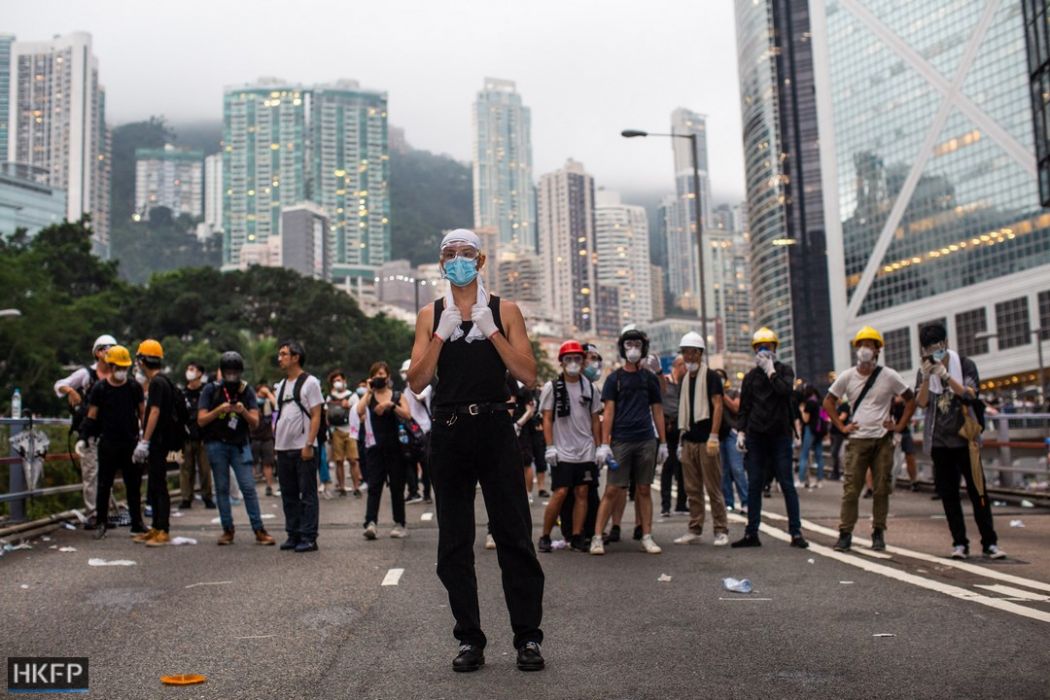Hong Kong’s pro-democracy movement went through a five-year lull. Since the 2014 Occupy Movement ended without producing the desired systemic changes, society had struggled to get it together. Disillusioned and protest-fatigued citizens seemed to have lost their political mojo and reverted to their old selves: tuning out noisy partisan bickering and minding their own business.
The perceived failure of a large-scale uprising created an opening for those in power to go on the offensive. In the years since, the authorities had made damaging incursions into our freedoms and way of life, by disqualifying opposition lawmakers, banning unwanted candidates from the ballot, outlawing a localist party, expelling a defiant foreign journalist, and ceding a piece of our territory in the heart of the city to the mainland authorities.

Hong Kong people were kicked while they’re down, over and again. We had grown so used to these political assaults that they barely registered. Beijing had all but written us off as docile subjects who were finally beaten into submission.
Then suddenly, a spark.
Chief Executive Carrie Lam’s audacious plan to allow extradition to mainland China has reignited the fire that we all thought was gone forever. Her miscalculation has not only brought back the massive crowds but also restored our solidarity and sense of purpose—to levels that surpassed even what we saw in 2014.
So much history was written in the past month of June that it would require its own chapter to do it justice. For starters, a pair of back-to-back Sunday marches drew millions to the streets and shattered the record set by the anti-national security law rally in 2003. A day of violent clashes between angry protesters and trigger-happy police in Admiralty saw the unprecedented deployment of rubber bullets and bean bag rounds by law enforcement—the greatest use of force since the Leftist Riots in 1967.

And once again, foreign press crews descended on the Tamar Government Complex and fanned out along Harcourt Road to interview protesters and politicians. For the first time since Occupy, Hong Kong people were back in the international spotlight for all the right reasons.
The fast-changing political wind eventually forced Carrie Lam to back down. The hitherto intransigent chief executive announced in a hastily arranged press conference that she would shelve the extradition proposal indefinitely and spend the rest of her term focusing on “livelihood” issues.
Hong Kong people have reasons to be proud. After years of losing ground to the governing elite, we have finally scored a point against not only the Hong Kong government but also the leadership up north. Lam’s tactical retreat, greenlighted by Beijing, represents the first major concession from the Communist Party under Xi Jinping’s strongman rule. By pushing back the extradition bill, we have shown the world that this tiny coastal island has the gumption and dignity to stand up to a superpower that most Western governments dare not.

In the process, we have upgraded Hong Kong from a financial centre to a beacon of democracy in Asia and elevated its people from economic beings to role models of nonviolent human rights defenders. Some foreign media outlets go so far as to suggest that Hong Kongers be nominated for a Nobel Peace Prize. If ever there’s a way to distinguish us from Shanghai or Singapore, this will be it.
Beijing has consistently underestimated the people of Hong Kong. Their misjudgment is based in large part on the erroneous assumption that we are no different from the fawning bureaucrats—the likes of Carrie Lam and her predecessors—whom they put in power and command at will. But the people turn out to be much more than the ones governing them, especially when they work together to make the whole far greater than the sum of its parts.
And we are also creative, in ways that the Communist Party can never comprehend, much less emulate. Just this week, netizens in Hong Kong pulled off an ingenious public relations stunt by crowd-funding a campaign to place full-page advertisements in leading newspapers around the world. The goal was to draw urgent attention to Hong Kong’s regressing freedoms ahead of the all-important G20 Summit in Osaka, Japan.

Even overseas Hong Kongers jumped into the fray, sharing on social media images of every newspaper they could get their hands on, from The Washington Post and The Guardian to the Asahi Shimbun and the Chosun Ilbo. Some staged flash mobs at major landmarks such as New York’s Grand Central Station, using the fold-out ad as a prop. Their message was clear: wherever there are Hong Kong people, there is that unmistakable spirit of defiance.
Victories are rare these days, and the temptation to rest on our laurels is great. After all, we have fought tooth and nail to stop a dangerous bill and this time we have tangible results to show for—in contrast to the sense of empty-handedness in 2014. We deserve a pat on the back and a celebratory drink for a job well done.
On the other hand, can we afford to let our guard down, however briefly? Or must we strike the iron while it’s hot and keep up the pressure on our opponents until other political demands are met? It was the same nagging question that beset protesters during the Occupy Movement: What are the next steps?

Momentum is a tricky thing. Like fame and public opinion, it takes more effort to maintain than it does to obtain. That’s why we need everyone to be back on the streets to be part of this July 1st rally—the first mass demonstration since the extradition saga. We need to show the leadership in Beijing that our resolve isn’t a passing phase that they can simply wait out (by reportedly telling Lam and other senior officials to go into hiding until public anger subsides) or that citizens can easily be pacified by tossing them a bone (by temporarily suspending the extradition bill and staging a series of sad-faced apologies).
To be sure, our work is not yet done, not until Lam agrees to fully withdraw the extradition proposal and set up an independent commission to investigate into last month’s clashes between officers and protesters, and to review guidelines for the use of police force in future protests.
The tragic death of three young people—one who fell from height during a demonstration atop a shopping mall scaffolding and two who took their own lives just this weekend—is a searing reminder of our unfinished business with the government. All of them left behind heartbreaking messages asking Hong Kong people to finish the work.

And the work has been cut out for us because being a Hong Konger now means a great deal more than it used to. Our identity is simultaneously a badge of honour to be worn with pride, and a collective duty that demands action and sacrifices. The responsibility to live up to our new-found global image rests with all of us, starting with exercising our receding freedom of expression. It is incumbent on every citizen to deliver a strong message of unity and conviction using headcounts and decibels at this July 1st rally—and every mass mobilisation thereafter.
Considering all that we have achieved over these past months, Hong Kong people—whether a local or expat, a grandparent or teenager, a constructor worker or teacher—has earned the right to walk with a bit of swagger. Let’s do it on Hennessy Road where the world can see it.
Jason Y. Ng is a convenor of the Progressive Lawyers Group.
